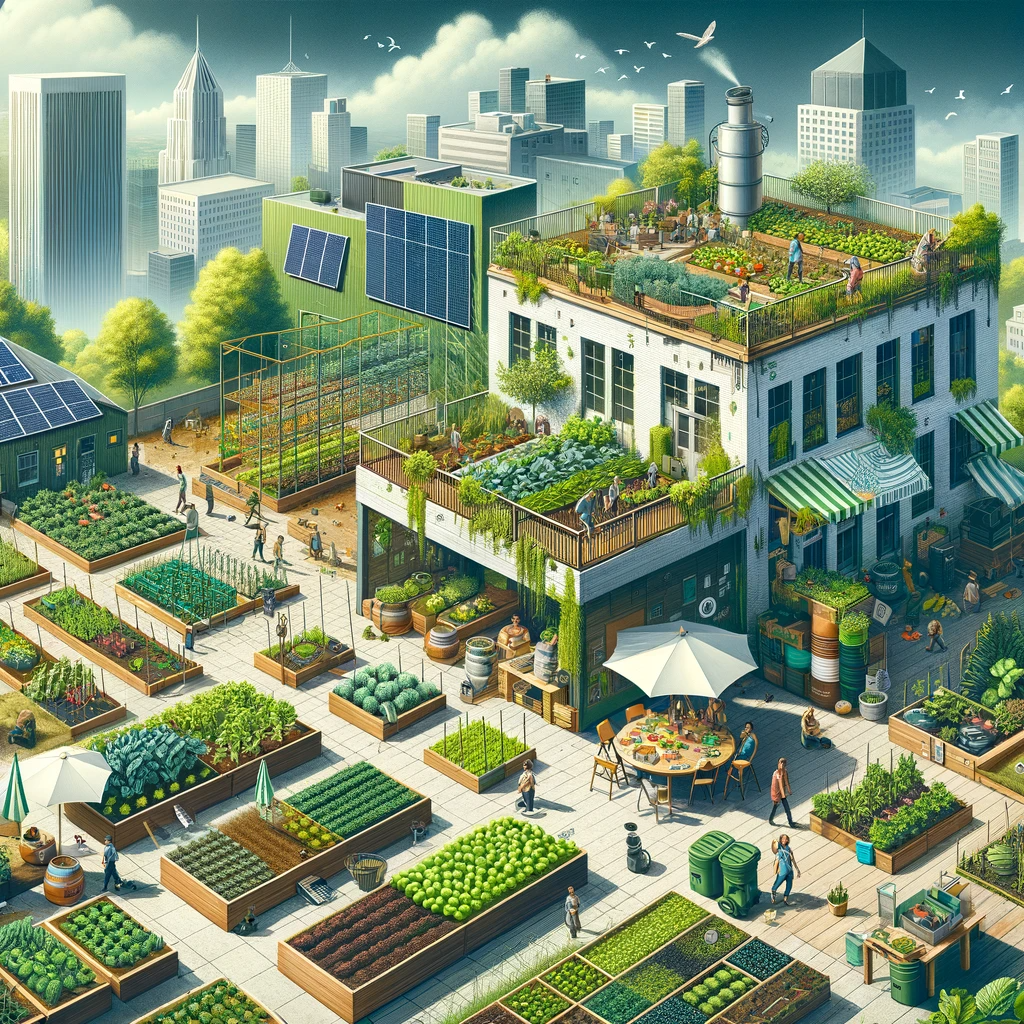Hello, green-thumbed friends and city dwellers! As a realtor with a passion for gardening, I’ve watched the urban farming trend take root in Portland’s real estate market, blossoming into a vibrant aspect of city living. Just like a well-tended garden yields a bountiful harvest, incorporating urban farming into your home can enrich your life and community. So, let’s dig into the world of urban farming in Portland, explore its influence on real estate, and discuss what crops you can plant in September to cultivate your own urban oasis.
The Seeds of Urban Farming in Portland
Urban farming is like planting in small pots; it’s about making the most of limited space to grow your own food. In Portland, a city known for its environmental consciousness and love for all things local, urban farming has sprouted up in backyards, rooftops, and community gardens. It’s not just a trend; it’s a lifestyle that’s taking root, reflecting the city’s commitment to sustainability and self-reliance.
Cultivating Your Own Urban Farm
- Starting Small: Just like starting with seedlings before planting a whole garden, begin your urban farming journey with a small, manageable space. Consider container gardening, vertical gardens, or a small plot in your backyard. The key is to start small and grow your garden as you gain experience and confidence.
- Choosing the Right Crops: In urban farming, every plant counts. Choose crops that are well-suited to your space and climate. In Portland, the temperate climate allows for a variety of crops. For September planting, consider cool-season vegetables like kale, spinach, radishes, and garlic. These crops can handle the cooler temperatures and will provide a hearty harvest.
- Maximizing Space: Just like maximizing the floor plan in a cozy home, in urban farming, it’s crucial to make the most of your available space. Use vertical planters, trellises, and hanging baskets to grow upwards. Intercropping and succession planting can also help you get the most yield from your garden.
- Community and Shared Spaces: Urban farming isn’t just an individual pursuit; it’s a community effort. Participate in community gardens or share your harvest with neighbors. In Portland, community gardens are a common sight, offering residents a chance to cultivate their own crops and foster community bonds.
The Influence of Urban Farming on Real Estate
- Increased Property Appeal: Just like a well-landscaped yard can boost curb appeal, homes with urban farming potential are increasingly attractive to buyers. Features like raised garden beds, greenhouses, or established fruit trees can make a property stand out in the market.
- Sustainability and Self-Sufficiency: Urban farming reflects a broader interest in sustainable living. Homes that support this lifestyle, through rainwater harvesting systems, composting setups, or solar panels, are not only appealing for their functionality but also for their alignment with sustainable values.
- Community and Lifestyle: Urban farming is more than just growing food; it’s about cultivating a lifestyle. Neighborhoods known for their community gardens or local farmers’ markets often have a strong sense of community and are attractive to those looking for a connected, sustainable lifestyle.
Nurturing Your Urban Farm
- Soil and Sun: Just as a solid foundation is crucial for a home, good soil and adequate sunlight are essential for a garden. Test your soil, amend it as needed, and choose a spot that gets plenty of sunlight to ensure your crops thrive.
- Watering Wisely: In gardening, as in real estate, resource management is key. Set up a rain barrel to collect water, or consider a drip irrigation system to water your plants efficiently and sustainably.
- Pest Management: Keep your garden healthy by managing pests naturally. Encourage beneficial insects, use barriers or traps, and practice crop rotation to keep pests at bay without resorting to harsh chemicals.
- Harvesting and Enjoying: The best part of urban farming is the harvest. Enjoy the fruits (and vegetables) of your labor, share with friends and neighbors, and don’t forget to save some seeds for next season!
Conclusion
Urban farming in Portland is more than just a trend; it’s a reflection of the city’s love for nature, community, and sustainable living. Whether you’re a seasoned gardener or a curious newbie, incorporating urban farming into your home can bring joy, bounty, and a deeper connection to your environment. So, roll up your sleeves, get your hands dirty, and join the urban farming movement. Your future self, and your community, will thank you for it.
Happy planting, and may your garden and home be ever flourishing!


 Facebook
Facebook
 X
X
 Pinterest
Pinterest
 Copy Link
Copy Link


